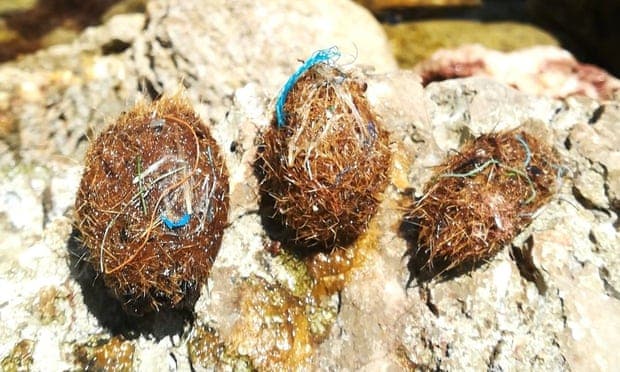Seagrasses collect and compress plastic particles into balls
The ocean is full of little wonders and surprises. Research over the past few years has taught us more and more about the area that covers most of our planet. Unfortunately, many of the results are not encouraging, both at great depths and on the surface, when a heavy load of plastic particles was found.
A new study has now taken a closer look at underwater life near the coast. In addition to the coral reefs, which are still endangered, there are also many seaweed here, which, for better or worse, have been given a new use with increasing pollution. Because here many plastic particles collect and condense into so-called Neptune spheres. These are small, round objects that increase in size and circumference from plastic part to plastic part.
During 2018 and 2019, Neptune balls were collected on four beaches in Mallorca and the plastic particles they contained were counted. Up to 1,500 particles were found in one kilogram of seaweed. If you extrapolate that to the Mediterranean Sea, the seaweeds alone collect around 900 million plastic particles there every year. However, it is still unclear whether this will also affect the grasses.
In addition to the ability to produce Neptune spheres, seagrasses have other positive effects on our environment. The plants are home to many marine life, serve as a source of food and convert carbon dioxide into oxygen. In troubled waters, erosion is prevented and the force of violent storm surges is dampened.
There are a total of 70 different species of seaweed that originated on land and conquered the oceans up to 100 million ago. Further studies will have to show to what extent the new “field of application” of grasses has an impact on land and water ecosystems.
Own opinion:
It’s amazing the places where plastic waste now accumulates and is later found. We have known for some time that the steadily increasing amount of plastic is leaving its mark everywhere due to our negligent actions. So we have to reduce our need for plastics or find new innovative ways to avoid future pollution. Otherwise we will soon be swimming in a flood of plastic.
via The Guardian




